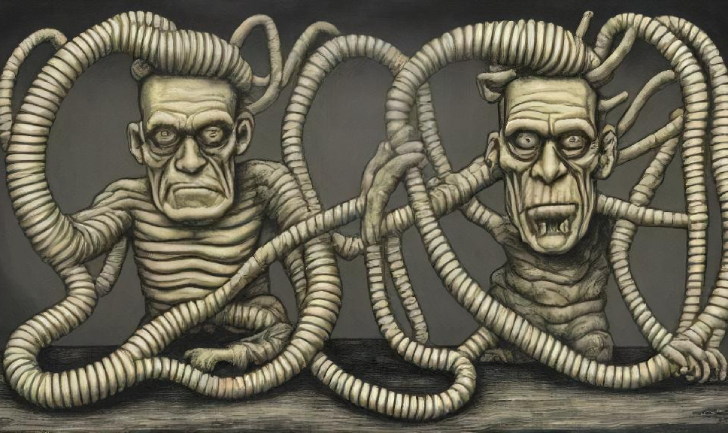Frankenstein Day
Frankenstein Day is celebrated on August 30th each year to honor the legacy of Mary Shelley, the author of the famous novel Frankenstein; or, The Modern Prometheus. The day celebrates her contribution to literature, particularly in the science fiction and horror genres. The novel, published in 1818, tells the story of Victor Frankenstein, a scientist who creates a living being from dead body parts. The creature, often mistakenly called “Frankenstein” instead of “Frankenstein’s Monster,” has become an iconic figure in literature and popular culture.

Slinky Day
Slinky Day is celebrated on August 30th, recognizing the popular toy known as the Slinky. Invented by Richard James in 1943, the Slinky is a simple yet fascinating toy that consists of a pre-compressed helical spring that “walks” down stairs, flips, and stretches in mesmerizing ways. Slinky Day is a time to celebrate the joy and nostalgia associated with this classic toy. People often mark the occasion by playing with Slinkys, organizing competitions to see whose Slinky can “walk” the farthest, or even exploring the toy’s physics in educational settings. It’s a day to enjoy the simple pleasures and the timeless appeal of a toy that has entertained generations.

Beach Day
National Beach Day is celebrated annually on August 30 to promote the conservation of beaches and inspire people to enjoy them responsibly. Founded by animal activist Colleen Paige, the day encourages activities like beach clean-ups, hosting beach-themed parties, and raising environmental awareness about coastal protection.

August 30th has seen various significant events throughout history.
Historical Events:
1363: The beginning of the Battle of Lake Poyang, one of the largest naval battles in history, took place between the forces of Zhu Yuanzhang, who would later establish the Ming Dynasty, and Chen Youliang of the Han faction.
1799: The British capture the Dutch fleet during the Napoleonic Wars in what is known as the Vlieter Incident.
1835: Melbourne, Australia, is founded. The settlement was originally established by John Batman and others.
1918: Fanya Kaplan, a Socialist Revolutionary, attempts to assassinate Vladimir Lenin, leading to the Red Terror in Soviet Russia.
1945: The British Raj arrests and puts on trial members of the Indian National Army during the Indian independence movement.
1940: The animated film A Wild Hare debuts, marking the first appearance of Bugs Bunny as the character we know today.
1963: A direct communication hotline between the United States and the Soviet Union, often referred to as the “Hotline,” becomes operational. This was established after the Cuban Missile Crisis to prevent accidental war.
1967: Thurgood Marshall is confirmed as the first African American Justice of the United States Supreme Court.
1995: NATO begins Operation Deliberate Force against Bosnian Serb forces during the Bosnian War.
Birthdays:
1797: Mary Shelley, English author best known for writing Frankenstein; or, The Modern Prometheus.
1871: Ernest Rutherford, New Zealand physicist who is considered the father of nuclear physics.
1901: Roy Wilkins, an American civil rights activist and leader in the NAACP.
1930: Warren Buffett, American business magnate, investor, and philanthropist.
1958: Anna Politkovskaya, Russian journalist and human rights activist.
Deaths:
1483: Louis XI of France, also known as “Louis the Prudent,” who ruled as King of France from 1461 until his death. His reign saw the strengthening of royal power.
1645: Francisco de Quevedo, a prominent Spanish writer during the Siglo de Oro (Golden Age), known for his poetry and satirical works.
1940: J.J. Thomson, a British physicist who discovered the electron and won the Nobel Prize in Physics in 1906 for his work on the conduction of electricity in gases.
1943: Boris III of Bulgaria, the Tsar of Bulgaria during World War II, whose sudden death led to speculation and conspiracy theories.
1965: Le Corbusier, a Swiss-French architect, designer, and urban planner, widely regarded as one of the pioneers of modern architecture.
1983: Seán MacBride, an Irish politician and diplomat, who was a Nobel Peace Prize laureate and a founder of Amnesty International.
2006: Naguib Mahfouz, an Egyptian writer who won the 1988 Nobel Prize in Literature, best known for his works depicting life in Egypt, such as the Cairo Trilogy.


